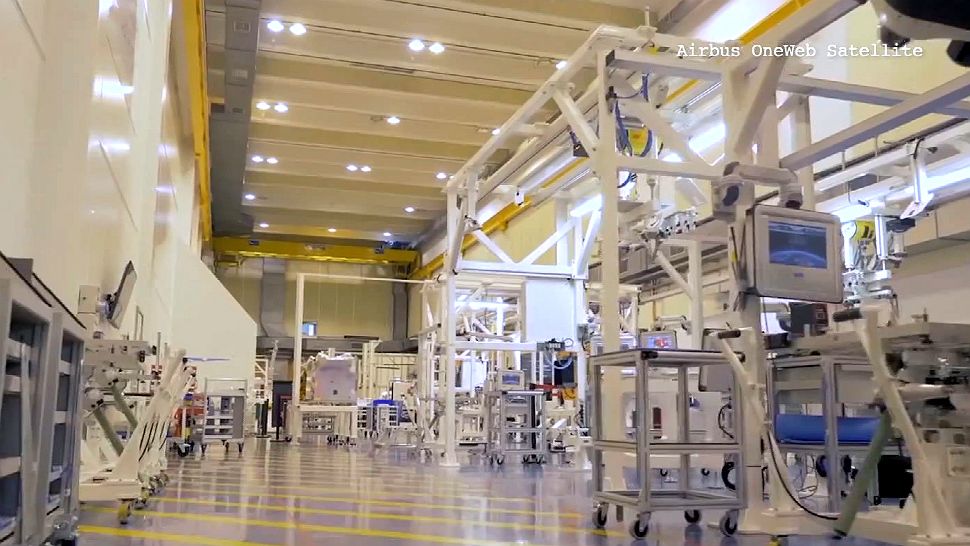BREVARD COUNTY, Fla. — A satellite company is partnering up with an aerospace company to create a new and faster way to build satellites that you can benefit from.
- OneWeb, Airbus partnering up to create satellites faster
- OneWeb Satellites wants to provide internet to everyone, anywhere
- Company able to produce t2 lightweight satellites a day, 1 each shift
- Get more space coverage
A joint venture of OneWeb and Airbus is hoping to bring internet to everyone and everywhere.
In 2012, they started from scratch.
“We've had to raise the money, built the satellites, manufacture all the components, and get ourselves to this point today,” said OneWeb Founder and Chairman Greg Wyler.
OneWeb Satellites is hoping to start a constellation of 650 satellites, then scaling it up to 1,980 satellites globally.
“The industry has recognized this is the place to be to plan for the future and operate for the future,” said Space Florida CEO Frank DiBello.
With a short shelf-life the OneWeb Satellites says they won't add to the rubble already up in space.
“They live about 10 years, and because we are very focused on responsible space, they are designed to burn on re-entry,” said OneWeb CEO Adrian Steckel.
It's the first high-volume satellite production facility — they are able to produce two lightweight satellites a day, one during each shift.
With the satellites being built following the Ford assembly-line model, they're aiming for global connectivity by 2021.
“Productions capability from building one every few months, to two a day,” said Airbus Americas Chairman and CEO C. Jeffrey Knittel.
The Space Coast is living up to its name.
According to U.S. Secretary of Commerce Wilbur Ross, who was at the OneWeb Satellites ribbon-cutting ceremony, this past week, the Space Foundation estimated the 2018 global space industry reached $414 billion, and this year $3 billion in private venture capital.
U.S. Sen. Rick Scott also made an appearance and says OneWeb is leading the future, and this will help with space exploration and now manufacturing for space from the Space Coast.
The company raised about $3.5 billion from investors like Coca Cola and some of the most well-known brands out there.
The facility can produce a satellite for approximately 1/50th of the cost of a traditional manufacturer. The average cost is about $1 million or less to launch about 34 satellites each month.
While they do not launch from the Space Coast, the company told Spectrum News 13 it's something its officials will consider.
Key Statistics
- Facility capable of producing up to 2 satellites/day, or 1/assembly line shift
- an produce a satellite for approximately 1/50th of cost of a traditional manufacturer
- Total Spacecraft Mass – 150 kg
- Payload Mass – 60 kg
- Propulsion – Electric (Xenon HET)
- Design life of satellites will be greater than 7 years in a 500 km orbit, and greater than five years in a 1,200 km orbit



